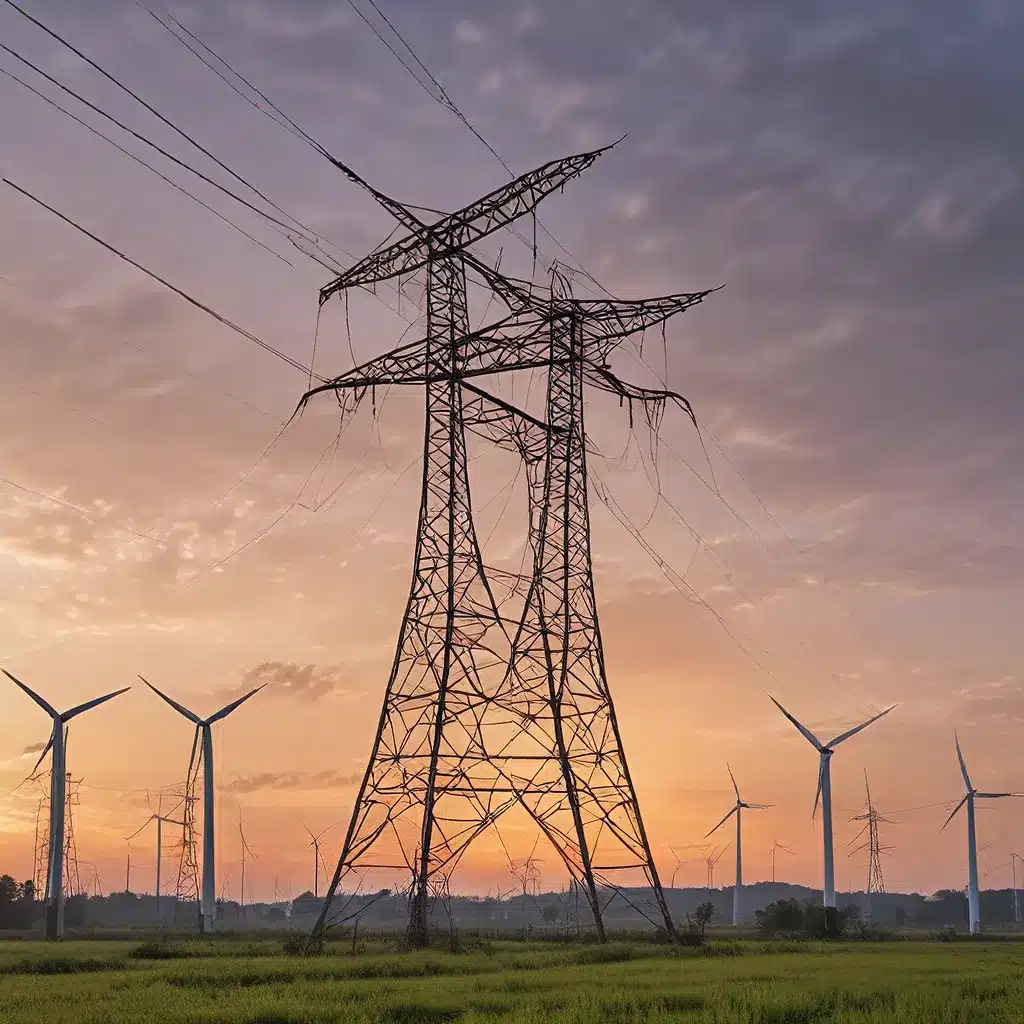
As the world grapples with the pressing challenges of climate change, the urgent need for reliable, renewable energy solutions has never been more apparent. Renewable energy sources like solar and wind hold immense promise, but integrating them into our aging power grids presents a complex web of technical and logistical hurdles.
That’s where adaptive power systems come into play. These cutting-edge technologies are revolutionizing the way we think about energy infrastructure, ushering in a new era of resilience and responsiveness. And at the forefront of this transformation is a pioneering researcher, Ali Bidram, whose work is poised to reshape the future of our power grids.
Powering the Future: Building Resilience through Adaptive Protection
Bidram, an assistant professor at the University of New Mexico School of Engineering, has recently been awarded a prestigious National Science Foundation (NSF) CAREER Award for his project focused on enhancing the resilience of power grids. The project, titled “Stochastic Optimization and Physics-informed Machine Learning for Scalable and Intelligent Adaptive Protection of Power Systems,” is a five-year, $517,000 endeavor that promises to deliver transformative change.
The central idea behind Bidram’s work is to reimagine the way power grids are protected and managed, especially in the face of the growing prevalence of renewable energy sources. As modern power grids increasingly rely on these intermittent and variable energy sources, the need for adaptable protection systems has become paramount.
“There is a need to redesign the conventional protection systems to make them adaptive to the prevailing power grid conditions,” Bidram explains. “The goal is to make the protection systems more resilient by utilizing stochastic optimization algorithms and physics-informed machine learning techniques.”
Adapting to the New Energy Landscape
Traditionally, power grid protection systems have been designed to operate in a static, predictable environment. But the integration of renewable energy has introduced a level of dynamism and unpredictability that challenges these conventional approaches.
Bidram’s project aims to address this issue by developing a data-driven adaptive protection platform that can respond to the evolving needs of the power grid. By leveraging stochastic optimization and physics-informed machine learning, the system will be able to anticipate and adapt to changing conditions, ensuring the grid remains reliable and resilient.
Imagine a scenario where a sudden surge in wind power generation temporarily overloads a section of the grid. A conventional protection system might simply shut down that segment, causing a widespread outage. But Bidram’s adaptive approach would be able to detect the imbalance, analyze the underlying physics, and intelligently reconfigure the grid to divert the excess power elsewhere, maintaining continuous service.
“The resilience and reliability of power grids have become a growing issue in recent years in a world that increasingly relies upon electrical power for everything from computers, phones, and even charging electric vehicles,” Bidram notes. “This project will bring transformative change by designing intelligent and adaptive protection schemes in response to challenges associated with modern power grids in the presence of extreme events.”
Empowering Communities, Empowering the Future
Bidram’s work extends beyond the technical aspects of grid resilience; it also includes an important educational and outreach component. By engaging with students from K-12 through undergraduates, he aims to spark interest in engineering, STEM (science, technology, engineering, and mathematics), and specifically, power engineering.
“This project will include an outreach component which will involve students in K-12 as well as undergraduates,” Bidram explains. “Summer camps and similar events will be utilized to reach out to underrepresented groups to interest them in pursuing careers in engineering, STEM, and specifically power engineering.”
By fostering the next generation of power system engineers and researchers, Bidram’s project not only addresses the immediate challenges of the grid but also lays the foundation for a more sustainable and equitable energy future.
Adaptive Power, Adaptive Solutions
The work being done by Bidram and his team at the University of New Mexico is a vital step in the journey toward a more resilient and renewable-powered grid. By harnessing the power of adaptive protection systems, they are paving the way for a future where our energy infrastructure can adapt and thrive in the face of ever-evolving challenges.
As we continue to grapple with the complexities of the energy transition, stories like Bidram’s remind us that innovation, collaboration, and a steadfast commitment to the greater good can unlock solutions that transform our world. And with the help of adaptive power systems, we may just be able to build a more resilient, sustainable, and equitable energy landscape for generations to come.
If you’re interested in exploring how Firewinder can support your renewable energy and resilience initiatives, I encourage you to reach out and learn more. Together, we can shape a brighter, more adaptable energy future.

